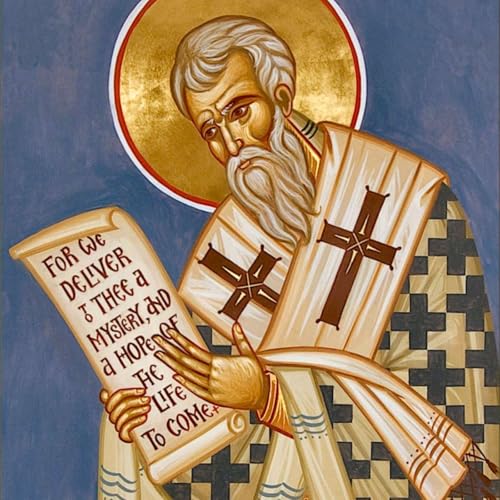He did this once for all when he offered up himself.
In chapter 8 of Hebrews, Jesus is called the high priest who is seated at the right hand of the throne of the majesty in the heavens. He is then called the minister/or, more literally the “liturgist” of the sanctuary, that is, the holy place, which is called “the true tent pitched not by man but by the Lord.” There are two emphases in this part of Hebrews and they are related: one is on Jesus’ high priestly sacrifice being made in the heavenly Jerusalem; and the other is that the holy place where his performed this “once for all” offering is depicted as a tent! Some of us might be windering…couldn’t he do better than a tent? It sounds primitive. It sounds basic. And in the setting of a wilderness, a mere tent wouldn’t provide sufficient covering. But that’s exactly the point. All of the protection that Jesus, or anyone for that matter, needs is provided by God in his words of instruction. This motif of God leading his people in the wilderness and feeding them with his words is found throughout the biblical narrative, beginning with the Law all the way through the Four gospels. And consistently, what is emphasized is not how ornate or impressive the place is where those words are uttered, but rather the teaching itself. In Isaiah chapter 54, the announcement that the Lord’s people will be comforted and consoled is made using shepherd terminology; and the dwelling place of Sarah, the one who had been barren is depicted clearly as a tent:
“Sing, O barren one, who did not bear;
break forth into singing and cry aloud,
you who have not been in labor!
For the children of the desolate one will be more than the children of her who is married,” says the LORD.
2“Enlarge the place of your tent,
and let the curtains of your habitations be stretched out; do not hold back; lengthen your cords and strengthen your stakes.
3For you will spread abroad to the right and to the left, and your offspring will possess the nations and will people the desolate cities.”
In the epistle to the Hebrews, the “once for all” offering of Jesus is made not in an earthly temple but in the Jerusalem above; additionally the one who makes the offering is referred to as a “minister of the sanctuary,” which sanctuary is said to be a tent set up by the Lord. The instruction to us, as hearers of the text, is clear - we are to submit fully to the will of God; and we are to keep moving, since the habitation he has prepared for us is still ahead.
Notes:
Exodus 40:36-37
Mark 14:36
Romans 12:1
Hebrews 11:10
On The Priesthood by St. John Chrysostom.
“Bobbi Jo” performed by Prince.
 Jan 30 20268 min
Jan 30 20268 min Jan 25 202612 min
Jan 25 202612 min Jan 11 20269 min
Jan 11 20269 min Dec 21 202511 min
Dec 21 202511 min Dec 5 202519 min
Dec 5 202519 min Nov 21 202515 min
Nov 21 202515 min Nov 8 202510 min
Nov 8 202510 min Nov 7 202511 min
Nov 7 202511 min
